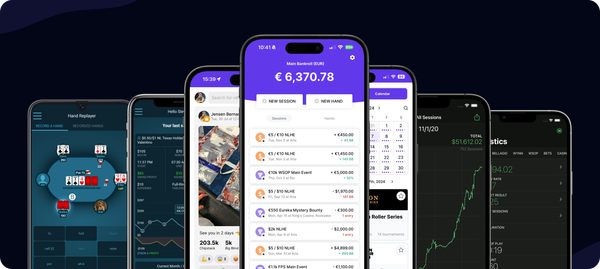How to Avoid Scams & Find Trustworthy Backers in Poker

Poker staking can be a powerful tool for both players and investors. It allows players to take shots at bigger tournaments while reducing financial risk, and it gives backers the opportunity to profit from successful players. However, the lack of formal contracts and legal oversight makes staking vulnerable to scams and fraud.
The only real solution to this problem is social control and transparency. A system where deals, payments, and reputations are openly tracked is the only way to ensure safe and fair staking.
Common Staking Scams to Avoid
1. Overselling Action
One of the most common staking scams is when a player sells more than 100% of their action, taking money from multiple investors but keeping the extra buy-ins. Without a publicly verifiable system, backers have no way of knowing how much action has actually been sold.
2. Failure to Pay Investors
A player gets staked, wins big, and then disappears without paying backers. Without a public reputation system, dishonest players can simply block investors and refuse to honor their deals.
3. Fake or Misleading Results
Some players manipulate their poker stats to inflate their win rate and justify a high markup. Others selectively report winning sessions while hiding losing ones. If backers don’t have access to verified, trackable results, they are essentially gambling on the player's honesty.
How to Find Trustworthy Backers
Since staking deals operate on trust rather than enforceable contracts, the best way to find reliable backers is through social verification and accountability.
1. Work with Backers Who Have a Public Reputation
- Look for backers who have a history of successful deals with other players.
- If a backer is completely unknown in the poker community, proceed with caution.
- A transparent staking network allows reputations to be built over time, reducing risk.
2. Avoid Private Deals Without Social Proof
- If a backer offers to stake you but refuses to discuss the deal publicly, that’s a red flag.
- The safest staking agreements happen in publicly verifiable communities where deals are tracked and recorded.
3. Get Clear Terms in Writing
Even in a trust-based system, every deal should have clear, written terms that both parties agree on before any money is exchanged. Make sure to clarify:
- Markup - Are you selling action at face value or charging a premium?
- Makeup - Do past losses carry over in long-term staking arrangements?
- Payout Terms - When and how will investors be paid?
If a backer is unwilling to put these terms in writing, that’s a sign they may not honor the deal.
The Role of Social Control in Safe Staking
The only real protection against staking scams is a public, trackable system where deals, payments, and reputations are visible. If all transactions and agreements are socially verified, scams become nearly impossible.
Public tracking ensures:
- Players cannot oversell action without being caught.
- Backers cannot refuse to pay winnings without damaging their reputation.
- Both parties have a verifiable history of successful deals, increasing trust.
Final Thoughts
Scams in poker staking happen when there is no accountability or public tracking. The only way to ensure fairness and transparency is through a system where deals and reputations are socially controlled and publicly verifiable. Without this, both players and backers are left vulnerable to fraud and dishonesty.
Ready to treat your poker like a business?
We’re building Pokerbase for you - to help you track sessions, manage your bankroll like a pro, and stay accountable so you can become the most professional version of yourself.
📲 Start tracking smarter today: Download for iOS & Download for Android
🚀 Join us on Instagram for insights & behind-the-scenes updates: @pokerbase.app
😎 Follow us on the Pokerbase platform: @pokerbase
🔔 Your journey to becoming a better poker player starts now. Let’s build it together.




